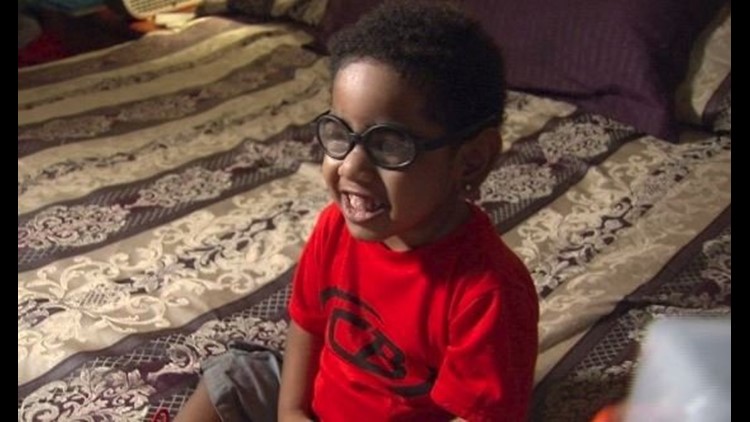ATLANTA (CBS) — A two-year-old desperately needs an organ transplant, and according to doctors, his father is a 110 percent match. However, surgeons at Emory Hospital will not do the operation just yet.
AJ Burgess, who weighs just 25 pounds, was born without a working kidney a month early. He spent 10 months in the neonatal intensive care unit at Scottish Rite.
“He made it his business to say once I get out I’m gonna promise to my son that he can get a kidney,” said AJ’s mother Carmella.
AJ’s father, Anthony Dickerson, was tested and proved to be the perfect match to give his son a kidney; however, he was in prison for violating his probation on weapons charges.
Dickerson got out and was set to go through the proper procedures and donate his kidney to his son October 3. But he went back to jail for violating his parole again for possession of a firearm or knife during the commission of or attempt to commit certain felonies. When he got out, everything changed.
“The lady said we need your parole information and your probation info. He said ‘why?’ We need you to be on good behavior for three to four months before you can give your son the kidney. And January 2018 we will think about re-evaluating you basically,” said Carmella.
Emory Healthcare issued the following statement regarding the issue:
Emory Healthcare is committed to the highest quality of care for its patients. Guidelines for organ transplantation are designed to maximize the chance of success for organ recipients and minimize risk for living donors. Because of privacy regulations and respect for patient confidentiality, we cannot share specific information about patients.
CBS46 was able to find a statement on the website for the United Network for Organ Sharing which explains procedures for organ donation:
You will need to answer all the questions that are asked. This includes questions about any history of “high risk” behaviors. The transplant staff will ask about your financial situation and talk about who can give you physical help and emotional support throughout the donation process. You will be asked to fully describe your reasons for wanting to donate and how it might affect your lifestyle (such as employment and family relationships). Involving your loved ones in the educational part of the evaluation process can be helpful. They can learn about the donation surgery and recovery process and support you in your decision.
But Carmella believes January 2018 may be too late. She told CBS46 that AJ’s body is starting to fail and he needs bladder surgery. She is hoping a petition she has set up online will bring awareness to his plight and help save her son’s life.



